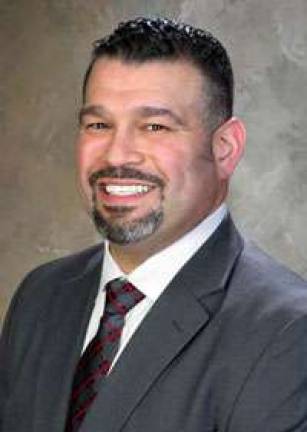Education year in review

School success can’t be boiled down to one single measure. Small steps can help Pennsylvania’s schools, students, and communities achieve every day, and make education transformative and valuable for learners of all ages. In 2015, the Department of Education (PDE) moved toward restoring or expanding critical programs in our schools, to improve education for everyone in the commonwealth. Here’s a look.
Strategic investments in education, from pre-k to postsecondary, will help students graduate college and career ready, as well as return Pennsylvania to a path to long-term prosperity.
Gov. Wolf exercised his line item veto power to continue his fight to expand high quality early childhood education programs, deliver a record-breaking boost in K-12 education to equitably fund our schools and implement proven strategies for success, with additional funding going toward special education. And following years of tuition hikes and layoffs, the governor continues to demand the commonwealth’s state-related, state system, and community colleges be funding adequately to provide Pennsylvania students with a world class education.
In his first months in office, Governor Wolf secured a zero percent tuition increase for more than 50,000 in-state students attending Penn State; spearheaded a push to ensure new education funding is used to support proven programs in the classroom; and ignited the state’s early childhood education providers to create capacity for almost 17,000 more of Pennsylvania’s youngest learners.
In a striking example of Schools That Teach and Government That Works, in June the bipartisan Basic Education Funding Commission unanimously approved a funding formula to drive new education dollars to Pennsylvania’s classrooms. Currently Pennsylvania is one of three states without a funding formula, however when the formula is adopted, it will be among the most comprehensive and progressive in the nation.
Also, in collaboration with the state Department of Health, PDE proposed changes to the state’s school immunization policy that will help students gets fully immunized sooner and keep everyone healthy in the classroom.
PDE has worked closely with the School District of the City of York’s chief recovery officer, who was appointed by Gov. Wolf in March, and district administrators to implement a comprehensive plan to advance student and district wellbeing. Some elements of the plan can be replicated in other districts, including emphasizing community engagement, building partnerships with local businesses, revamping programs for students, and updating academics through things like curriculum re-writes and lengthening the school day.
Also, the Wolf Administration created a recovery plan for the struggling Chester Upland School District, which eliminates the district’s annual structural deficit by modifying the special education tuition rate and securing a permanent increase to the district’s basic education funding base, eliminates the district’s negative fund balance, and plans and funds capital improvements to district schools.
2015 was a busy and productive year at PDE. Gov. Wolf and Department leaders met with thousands of educators around the state to hear their visions for education in Pennsylvania, and will use that input in the exciting and innovative projects PDE undertakes in the coming year. As the Department transitions into 2016, its underlying goal remains unchanged — to support educators, students, and families and ensure Pennsylvania students have access to a quality education.